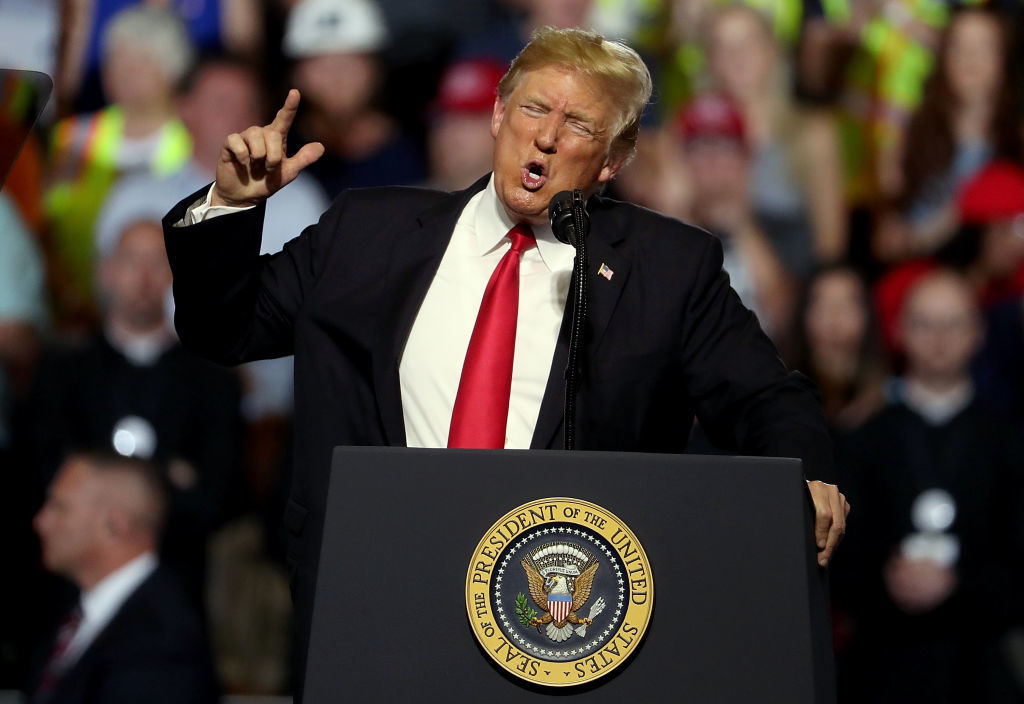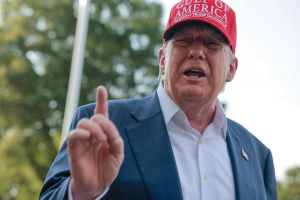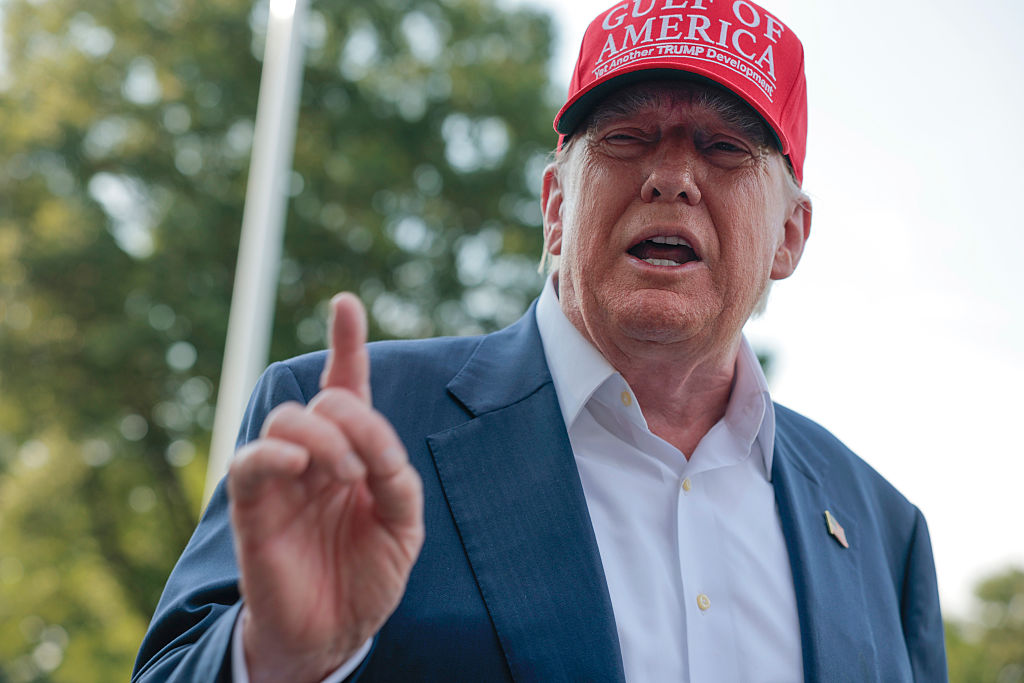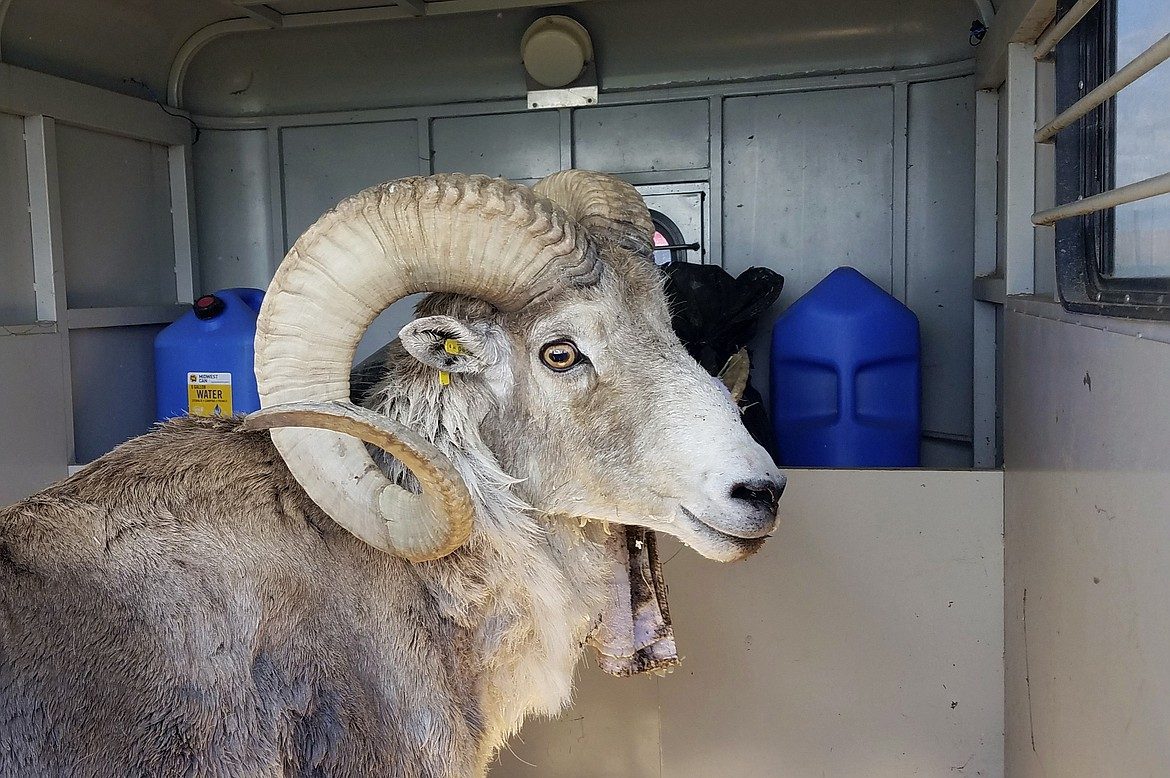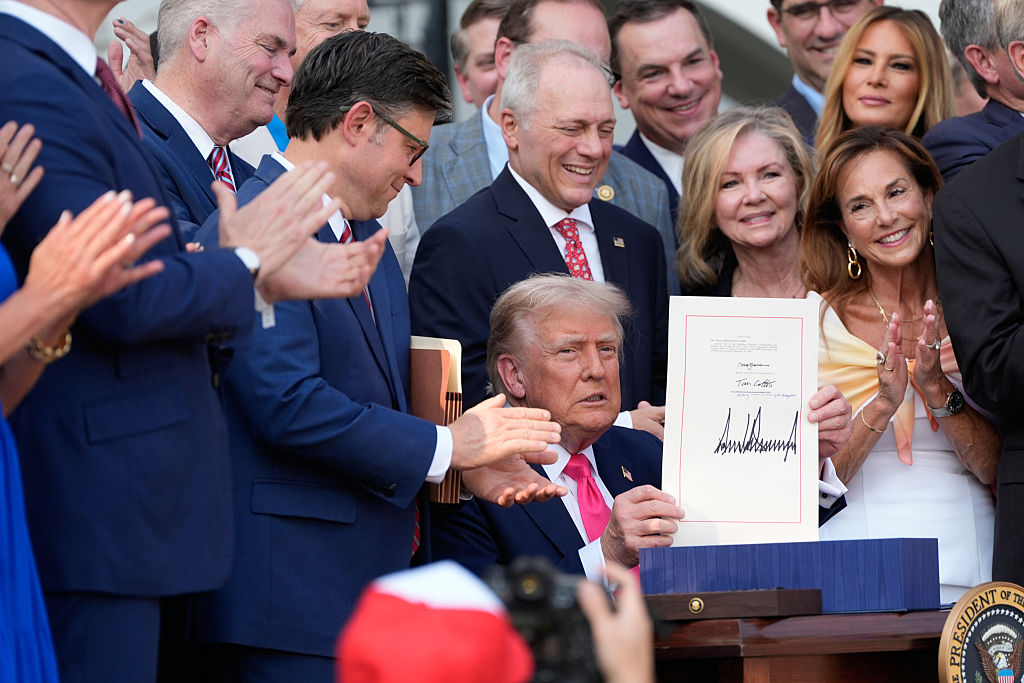The day after Independence Day, 2018, the President of the United States shambled into a packed auditorium in Great Falls, Montana, and delivered these remarks, apropos the size of the assembled audience:
“I have broken more Elton John records, he seems to have a lot of records. And I, by the way, I don’t have a musical instrument. I don’t have a guitar or an organ. No organ. Elton has an organ. And lots of other people helping. No we’ve broken a lot of records. We’ve broken virtually every record . . .”
Well, that’s as good an epitaph as any. Whoever’s in charge of the giant, gold-plated sarcophagus can sharpen the chisel and get carving. So much is contained here: boyish charm, stream of consciousness braggadocio, willingness to inflate the facts, celebrity-worship, and above all the thirst – that unrelenting, bone-dry, well-deep thirst – to be popular.
It’s hard to think of anything Donald Trump wants more than this. His significant wealth-lust is, he’s averred, a way of keeping score, and the game he plays is to offer his body and soul to the teeming masses for evaluation and consumption. Trump is no hedge fund sophisticate, no eagle-eyed oracle like Warren Buffet – he’s above all an American marketer, a populist whose definition of success is to make things that lots of people like – steak, casinos, hotels, say – and then convince hoi polloi that the ones labeled TRUMP are the finest. He’s willing to expose himself with easily disprovable lies about the numbers of people who come to see him speak. Not just willing, in fact – he seems physically unable to stop himself.
In the Nicomachean Ethics, Aristotle writes that the life of politics – by which he means a life of achievement in the polis, the city – is a life oriented towards honor, towards garnering the respect of one’s fellow citizens. But it only works, Aristotle thinks, if the people dispensing the respect are wise, know the person they are respecting, and respect said person for his excellence. I don’t especially care to have the approval of people who are foolish, who don’t know me, or who are judging according to some arbitrary measure. This is true, Aristotle argues, because what I really want, deep down, is to believe that in fact I am an excellent man. I need to trust the people approving of me if their approval will really mean much of anything.
This seems, to me, correct. It’s interesting, then, to see whose praise Donald Trump especially seeks. The first answer is, of course, everyone’s. Trump simply wants to be loved. But the second answer is celebrities. This isn’t the first time he’s mentioned Elton John in public – prior to his political career (in the American sense) Trump was prone to describing Elton John as a dear friend of his. Ditto Luciano Pavarotti, Tom Brady, Phil Mickelson, Larry King, Oprah Winfrey, Mike Tyson, Regis Philbin, Don King, etc., etc. He’s recently gloated on Twitter about the approving words he’s gotten from Kanye West and David Lynch, neither of whose artworks, it’s fair to assume, Donald Trump has much familiarity with.
The common denominator, as always, is popularity. Aristotle thinks that we want to be respected by the wise, so we can believe that we’re good. Trump wants to be respected by the respected. That’s all. There is no deeper criterion. It’s sickly, juiced up, ball-shrunk hyper-democracy; value is decided by vote, and the winners go home to Manhattan penthouses. The sad deep fact is that Trump doesn’t know what makes a man good or bad, and so believing himself good is not on the menu of options. There’s being popular, and then there’s being a loser – helming a failing (i.e. unpopular) television show, restaurant, newspaper, cable news channel, or whatever, all of which is equally sad! It’s almost impossible to imagine Trump praising a book or a person or an idea, or really anything, that hasn’t been approved by a lot of people.
There’s something terminal about Donald Trump, as if he personified some democratic end-game that we never saw coming, or even knew existed. The walking figure of a tall, thick man, spray tanned, hair-dyed and emptied of deep personal taste (have you seen his apartment?) cognizant only of what the masses approve.
In the same Montana speech last week, Trump took aim at one of George H.W. Bush’s campaign catch phrases, “A thousand points of light” meant to describe a society characterized by widespread philanthropic service, a quaint afterglow of coastal WASPish noblesse oblige (don’t you think so, Buffy?) itself an afterglow of Christianity. Trump’s gloss is this: “You know all of the rhetoric you see. ‘Thousands points of light.’ What the hell was that by the way? Thousand points of light – what does that mean? I know one thing. ‘Make America Great Again’ we understand. Putting America first we understand. Thousand points of light, I never quite got that one. What the hell is that? Has anyone ever figured that one out? It was put out by a Republican, wasn’t it?”
Fine questions all. What many Trump voters have figured out is that their betters have constructed a gold-plated money trough, and hidden it behind a gauzy banner of identity inclusivity, all while casting vile looks and epithets at the proles who haven’t matched their moral and professional excellence. Trump puts his two short pinkies to his lips, and lets out a shrieking whistle, beckoning the losers to the trough, assuring them that their exclusion is the doing of nefarious elites. He’s really not as wrong as he often seems. A stopped clock, twice a day, etc. Or a man who can read a crowd, and little else.
In any grown up society, Donald Trump would be a nobody, a venal child in a baggy suit. But he’s ours. He wouldn’t exist if we hadn’t made him, and he wouldn’t be here now if we didn’t want him. He’s the gross underbelly of America. Today, as yesterday and tomorrow, the winners of America will pantomime moral panic on the pages of every major paper and magazine. Trump will again be accused of razing our good place to the foundations. It will be a lie, still, no matter how many times it’s repeated. He will still be then what he is now – a blundering, boisterous, accidental exposer of what has long been laying there half-seen.
Ian Marcus Corbin is the owner of Matter & Light Fine Art in Boston, and a doctoral candidate in Philosophy at Boston College. Follow him on Twitter @ianmcorbin1



